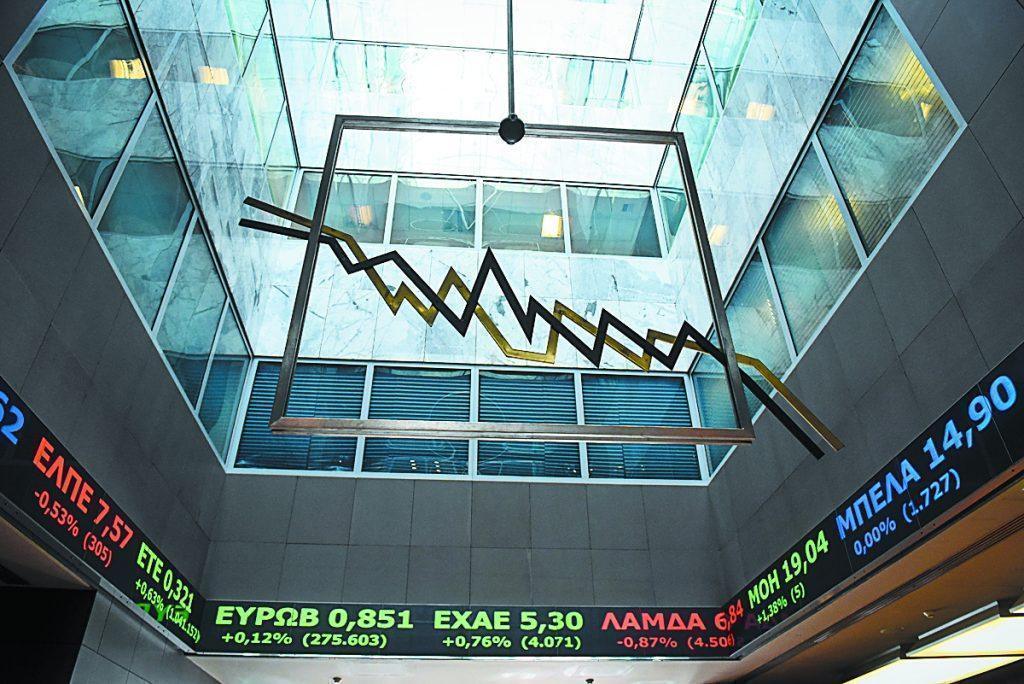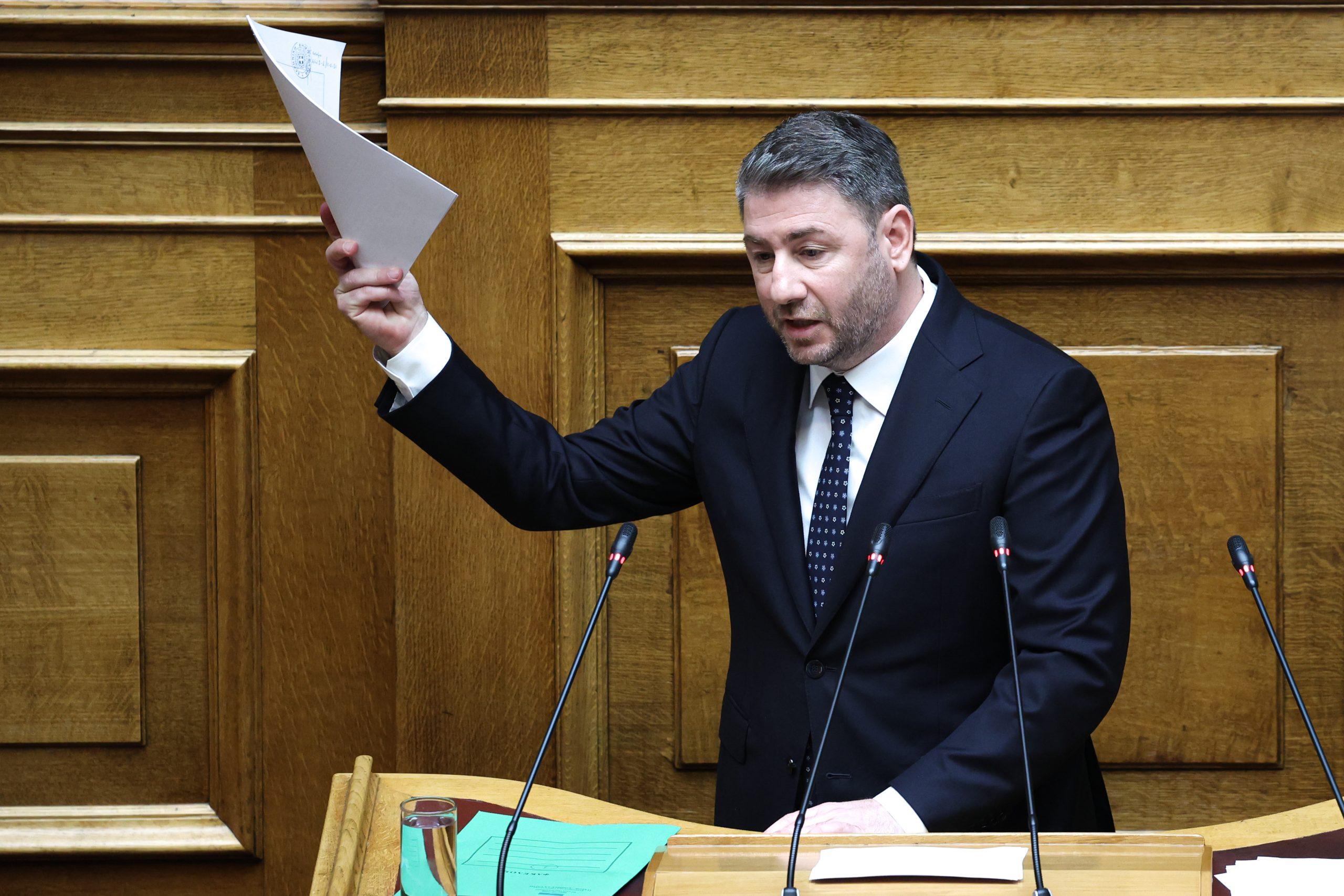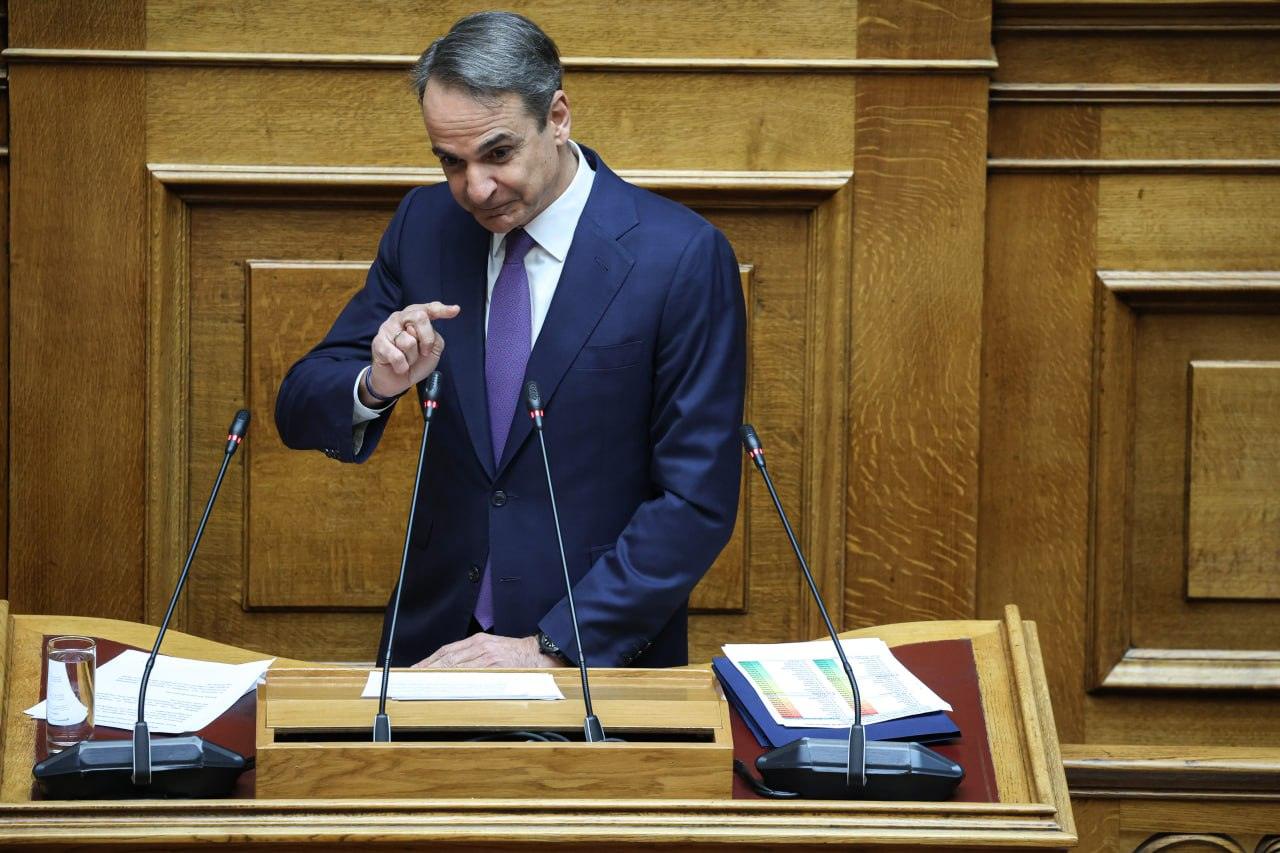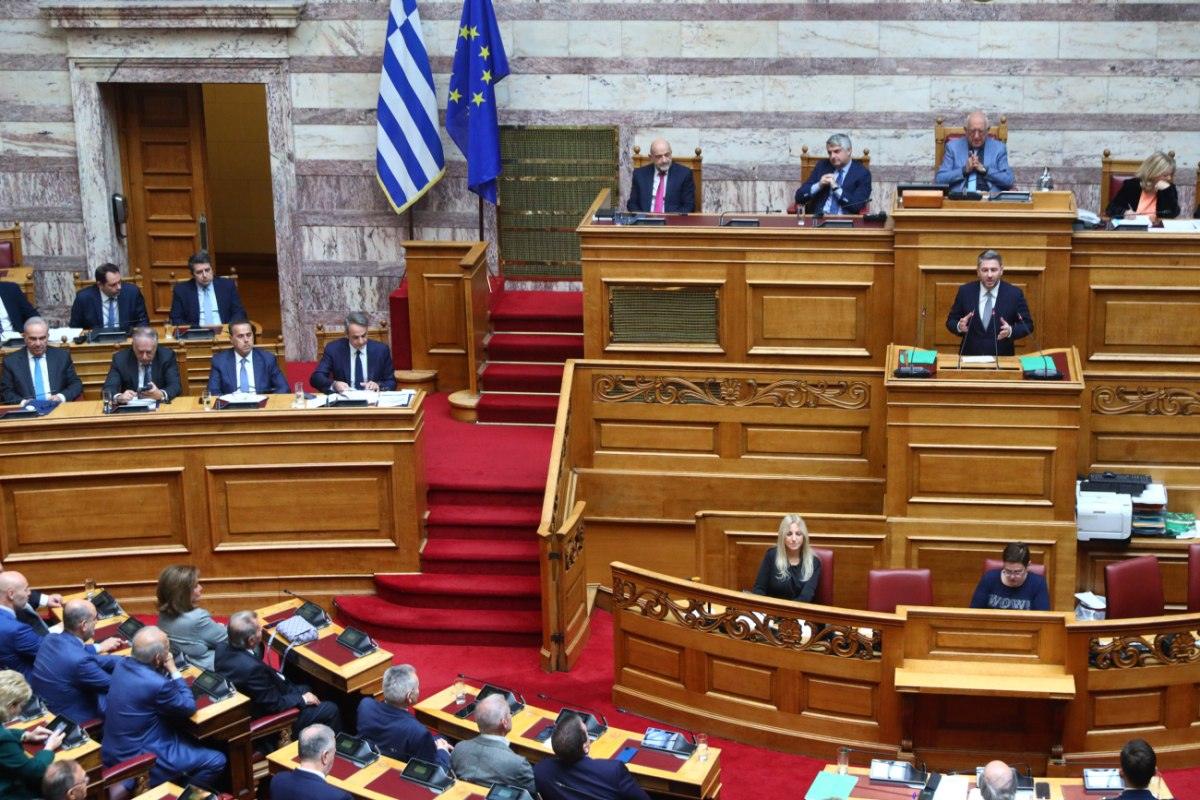The latest ECB estimates predict a deterioration of all the variables in terms of inflation and growth in the Eurozone, as the Greek Finance Minister, Christos Staikouras revealed at the OT Forum at the Thessaloniki International Fair.
Having just arrived from Prague, where he attended the Eurogroup and Ecofin meetings, Mr Staikouras spoke of inflation predictions of 8.1% in 2022, 5.5% in 2023 and a “landing” at 2% from 2024 onwards.
In the adverse scenario the estimate for 2022 remains unchanged, but for 2023 inflation jumps to 7%.
A recession scenario is possible even in 2023
As for growth, the baseline scenario predicts it will achieve a percentage of 3.1% in 2022, fall to 0.9% in 2023 to rise slightly to 1.9% in 2024.
The adverse scenario wants Eurozone to go into a 1% recession in 2023.
Above average Greece
According to the Greek Finance minister, Greece will move well above the European average in terms of growth in 2022 and 2023, recording one of the highest growth rates in Europe.
Mr Christos Staikouras stressed that the structure of wealth is also important, as Greece is recording record levels of investment and exports, something that has been sought for years. “Growth from increased consumption is one thing, but growth from investment and exports is another,” the Finance Minister explained, noting that Greece has succeeded in creating the conditions for sustainable growth.
Regarding the measures to be announced by the Greek Prime Minister, Mr Christos Staikouras noted that this has not changed compared to what Mr Kyriakos Mitsotakis said at the Council of Ministers two weeks ago.
The new data
Citing some “key considerations”, he said that the economy is “running” better in both permanent and non-permanent ways, recording higher growth and a larger fiscal margin, as well as better budget execution with increased revenues due to price hikes.
But along with the fiscal space, the needs are also increasing, as it is now estimated that the total support package will exceed the 10 billion euros, 80% of which will be subsidies for electricity and gas.
As for the funds, 1/3 of them comes from the state budget while the remaining 2/3 comes from the excess profits of the energy companies.
The support measures will by 65%-35% concern enterprises and households respectively, while the interventions are divided into permanent (abolition of solidarity levy, permanent pension increases) and non-permanent (targeted assistance to households and enterprises).
The outlook for 2023
Returning to the outlook for the Greek economy, Μr Staikouras noted that the positive developments we had in 2022 could continue in 2023. He cited high growth, shrinking unemployment, the increase in the minimum wage (and thoughts of a new increase in 2023), as well as the increase in industrial production as key elements that give “confidence that we are doing well”. Still, tourism receipts have reached 95% in 2019.
These are not enough to ensure that Greece will emerge unscathed from the crisis, but these are some really important steps. However, the finance minister made it clear that there will be adverse developments, and therefore measures must be as targeted as possible.
Mr Staikouras noted that over the last three years businesses have been significantly helped by the government’s economic policy, noting that it’s high time we supported pensioners and civil servants. New interventions will also be announced by the Prime Minister for the primary sector, while “many important” measures for housing will be announced.
Excise duty and tax evasion
Concerning the excise duty, Mr Staikouras noted that the government chose not to abolish it, but that everyone should pay a little more. However, this the extra revenue should be returned to vulnerable households and farmers in a targeted manner. “It is important for economic policy to meet the needs of the whole society,” he added.
Finally, regarding tax evasion, Mr Staikouras noted that the “VAT gap” shows that a reduction is being recorded, which the Minister of Finance attributed primarily to the reduction of taxes. Citing the example of ENFIA property tax, he explained that with the reductions decided collectability has increased.
At the same time, electronic transactions are also increasing, reaching 52 billion. Last year, compared to about 18-20 billion 4 years ago. This year, it is estimated to reach €60 billion. At the same time, tax evasion is reduced, control mechanisms are strengthened and the digitization of controls is promoted – an example is the appodixi app. “But we are not at the point we want to be, we can also further reduce tax evasion, as well as fuel and tobacco smuggling ,” concluded Mr Christos Staikouras, adding that on Monday the measures to be announced by the Greek Prime Minister will also be specified.









































